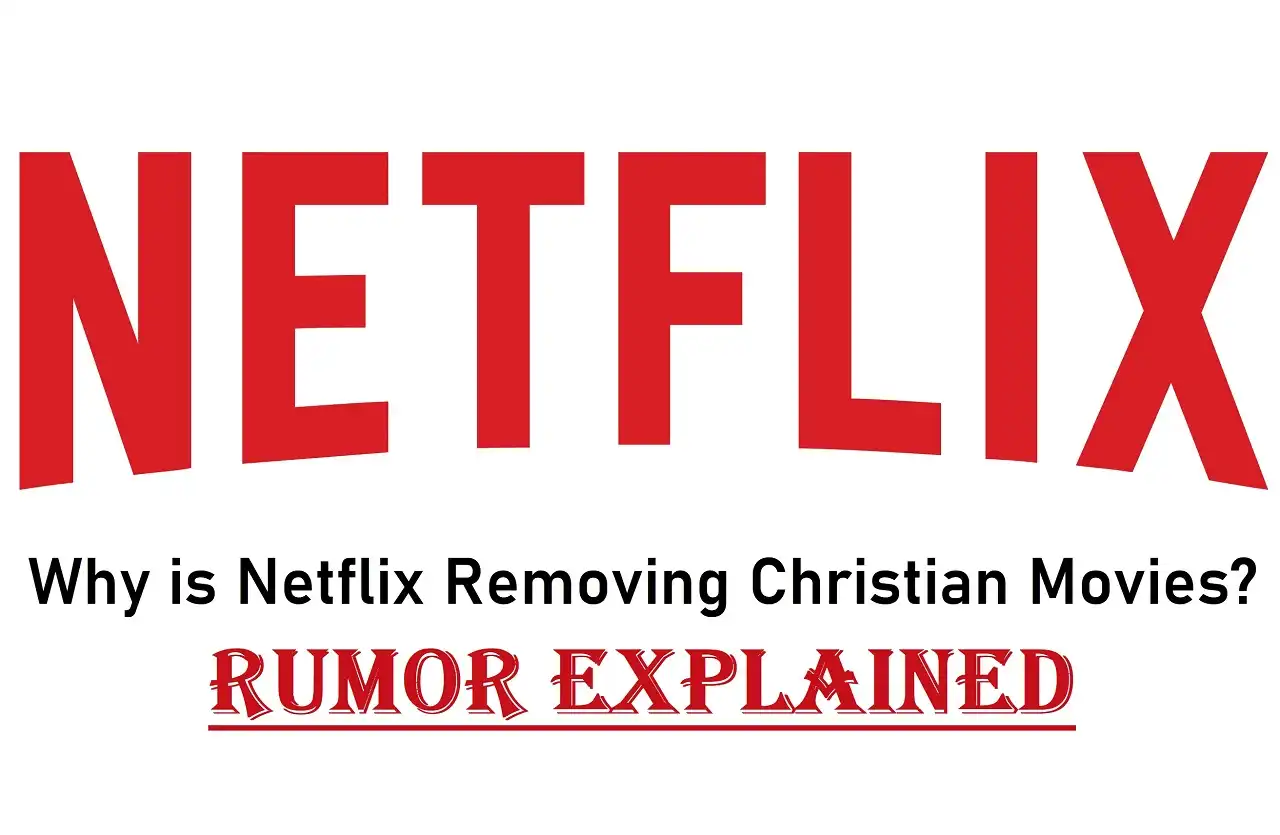
In recent years, Netflix, the leading streaming platform, has made headlines for its decision to remove certain Christian movies from its catalog. This move has sparked curiosity and concern among subscribers, particularly those who enjoy faith-based content. So, why is Netflix removing Christian movies? Let’s delve into the reasons behind this decision and its implications.
There’s a lot of talk swirling around about Netflix possibly pulling Christian films and content from its streaming service. As avid Netflix fans, we had to investigate this claim firsthand. It seems like the concern is coming from Netflix deciding not to renew its license for certain Christian films. But Netflix hasn’t officially announced any intention to target or remove Christian content specifically. Instead, they regularly rotate their content as licenses expire and new deals are struck. Their choices about what to include largely depend on what they believe viewers are interested in watching, as well as what content creators and distributors make available for licensing. However, “Why is Netflix Removing Christian Movies” there may be some other possible reasons for content removal mentioned below:
1. Content Diversity
Netflix is known for its diverse range of content catering to various interests and demographics. While the platform continues to offer a wide selection of genres, including drama, comedy, and documentaries, it also strives to appeal to a global audience with diverse cultural backgrounds and beliefs. As part of its content strategy, Netflix regularly evaluates the performance and relevance of its offerings to ensure they align with the preferences of its subscribers.
2. Audience Preferences
One factor influencing Netflix’s decision to remove Christian movies could be changes in audience preferences. Streaming platforms rely heavily on data analytics to understand viewer behavior and preferences. If certain types of content, including Christian movies, are not generating sufficient viewership or engagement, Netflix may choose to reallocate resources to other genres that resonate more strongly with its audience.
3. Licensing Agreements
Another consideration is the licensing agreements governing the distribution of content on Netflix. The platform negotiates contracts with content providers, including studios and production companies, to secure the rights to stream movies and TV shows. These agreements often have expiration dates or renewal clauses, and Netflix may opt not to renew contracts for Christian movies if they do not meet predetermined performance metrics or if there are more lucrative opportunities elsewhere.
4. Shift in Strategy
Netflix’s decision to remove Christian movies may also reflect a broader shift in its content strategy. As the streaming landscape becomes increasingly competitive, platforms like Netflix are under pressure to differentiate themselves and attract subscribers. This may involve focusing on original content production or investing in high-profile projects with broad appeal, rather than licensing third-party titles, including Christian films.
5. Cultural Sensitivities
In some cases, the removal of Christian movies from Netflix’s catalog may be influenced by cultural sensitivities or geopolitical considerations. The platform operates in numerous countries with diverse cultural and religious landscapes, and it must navigate potential sensitivities to avoid controversy or backlash. This may lead to the removal of content that could be perceived as contentious or divisive in certain regions.
Conclusion
The decision to remove Christian movies from Netflix’s catalog is likely influenced by a combination of factors, including content diversity, audience preferences, licensing agreements, strategic considerations, and cultural sensitivities. While some subscribers may lament the absence of faith-based content, Netflix’s evolving content strategy reflects its ongoing efforts to adapt to changing market dynamics and meet the diverse needs of its global audience. As the streaming landscape continues to evolve, it remains to be seen how Netflix will navigate the delicate balance between catering to diverse tastes and maintaining a competitive edge in the industry.
We hope you found this article helpful. If you did, be sure to check out our blog for more great content like this.





